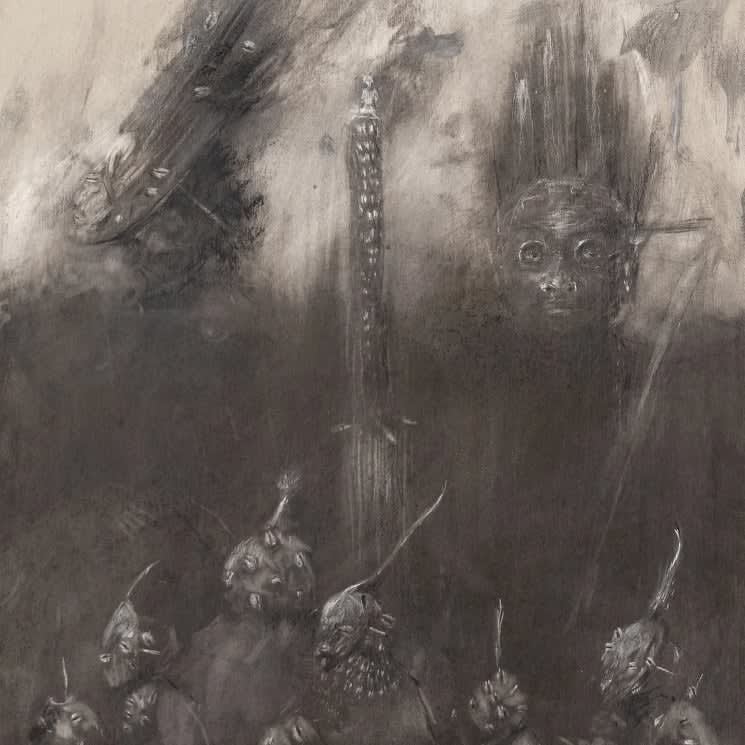"History repeats itself." You've heard this line uttered by a high school history teacher or a parent trying to instil their wealth of knowledge in you. When you first heard it you probably rolled your eyes. And now, between the climate crisis, the conflicts in Ukraine and occupied Palestine, North America's intense political polarization and so much more, it feels harder than ever to look backward for answers. Forward feels like the only way out, but feelings can deceive — the classic message could not be more true.
Camae Ayewa — the Philadelphia-based poet and composer better known by her stage name, Moor Mother — shoves that unfortunate pill down the throats of her listeners on The Great Bailout. Her fifth studio album, it's arguably her most ambitious undertaking yet, as she explores the trauma and everlasting effects of one of the most oppressive man-made projects in the world: British colonialism.
The message is clear: Nothing of monetary value can ever remove the scars imposed on the human spirit. No song on the album relays this message more clearly than opener "Guilty," a direct response to actions taken by the United Kingdom's finance ministry, who tweeted in February 2018 that "Here's today's surprising #FridayFact. Millions of you helped end the slave trade through your taxes." This cleverly worded, self-serving message is a direct reference to the loan which was taken out under the 1835 Slavery Abolition Act to appease 46,000 British slave owners who were losing their human "property" under the Act. A modern equivalent of £17 billion (or $25 billion CAD) was doled out by UK taxpayers and, disturbingly, a significant portion of this taxpayer population included descendants of the enslaved.
Ayewa has proven time and time again that she won't stand for whitewashing narratives or the erasure of history. This much is clear on "Guilty," which features fellow Black American experimental artist Lonnie Holley's pained and impassioned crooning over an array of reverberating stringed instruments. "Taxpayers of erasure, of relapse, of amnesia / Did you pay off the trauma?" Ayewa asks in the opening lines, and the song's name is uttered time and time again throughout its near-ten minute runtime, feeling sharper and more piercing each time it returns. Never has the word "Guilty" felt so accusatory.
Part of what makes this project so powerful is the perfect balance of Ayewa's thought-provoking verses and the new life brought by the featured artists. The Great Bailout is laden with gorgeous performances, from Mary Lattimore's masterful harp skills to Kyle Kidd howling guttural blues vocals over harsh static droning in "Compensated Emancipation," like a ray of light trying to escape a wall of thick mud. It's an album that also benefits from some carefully deployed humour, like the sardonically-titled "God Save the Queen," on which Alex Farr (also known as justmadnice) produces a deranged anthem-turned-trap instrumental with trumpets blaring and scathingly obvious sarcasm in Ayewa's poetic incantations.
Moor Mother's latest album is a tough listen, and might take a bit of research and a few listens to fully situate in its various contexts. This is all to be expected — grappling with terrible moments in history is never a pleasant or easy experience, but Ayewa makes the pain of remembering feel like fuel for the future.
Moor Mother's 'The Great Bailout' Is Fuel for the Future

BY Spencer Nafekh-BlanchettePublished Mar 8, 2024